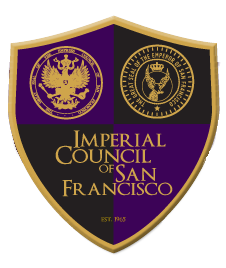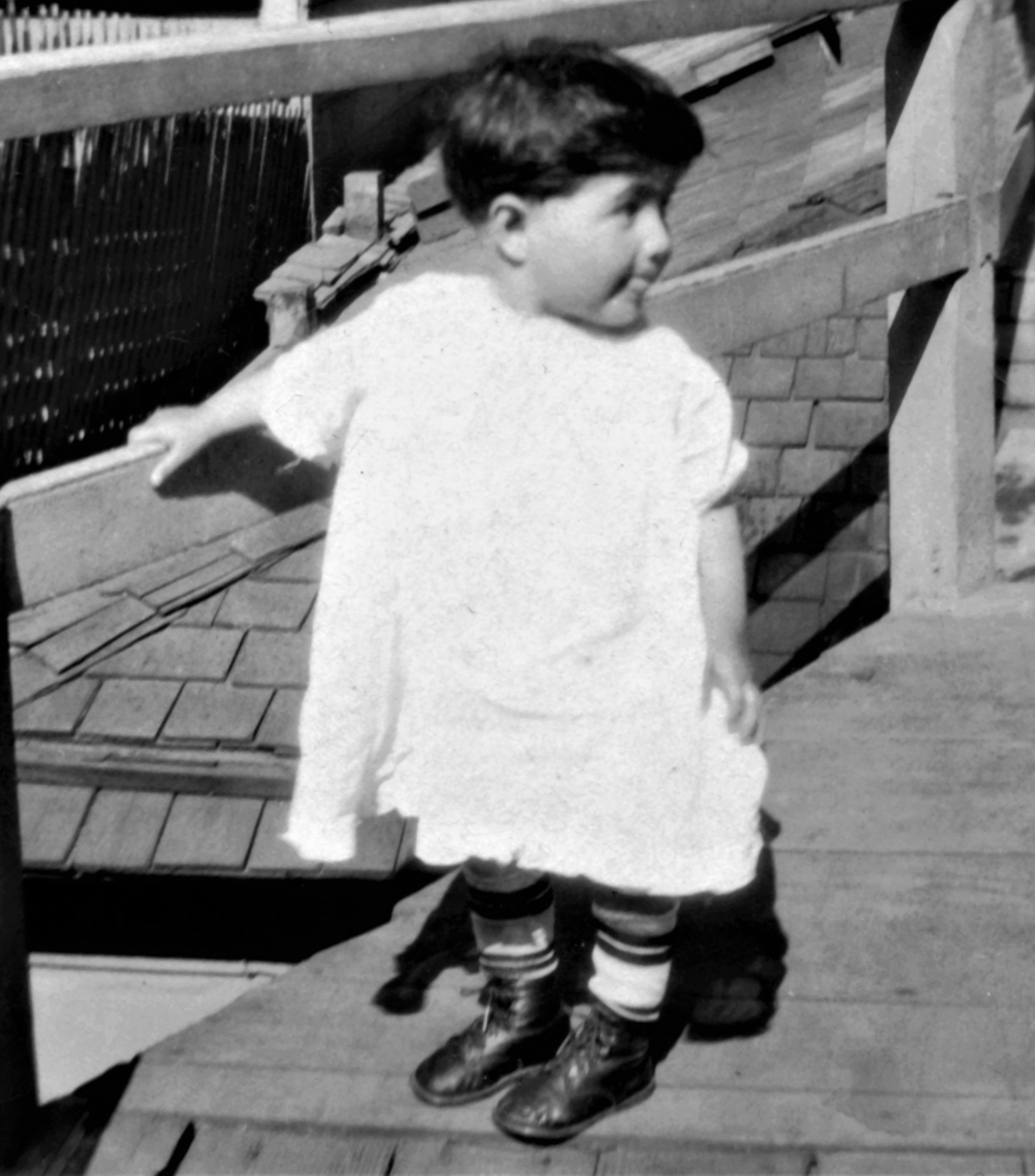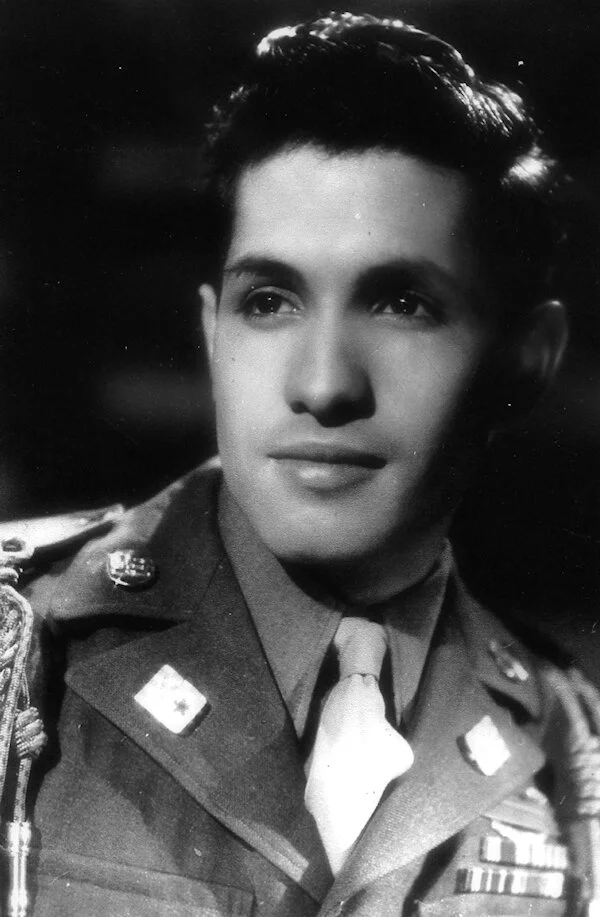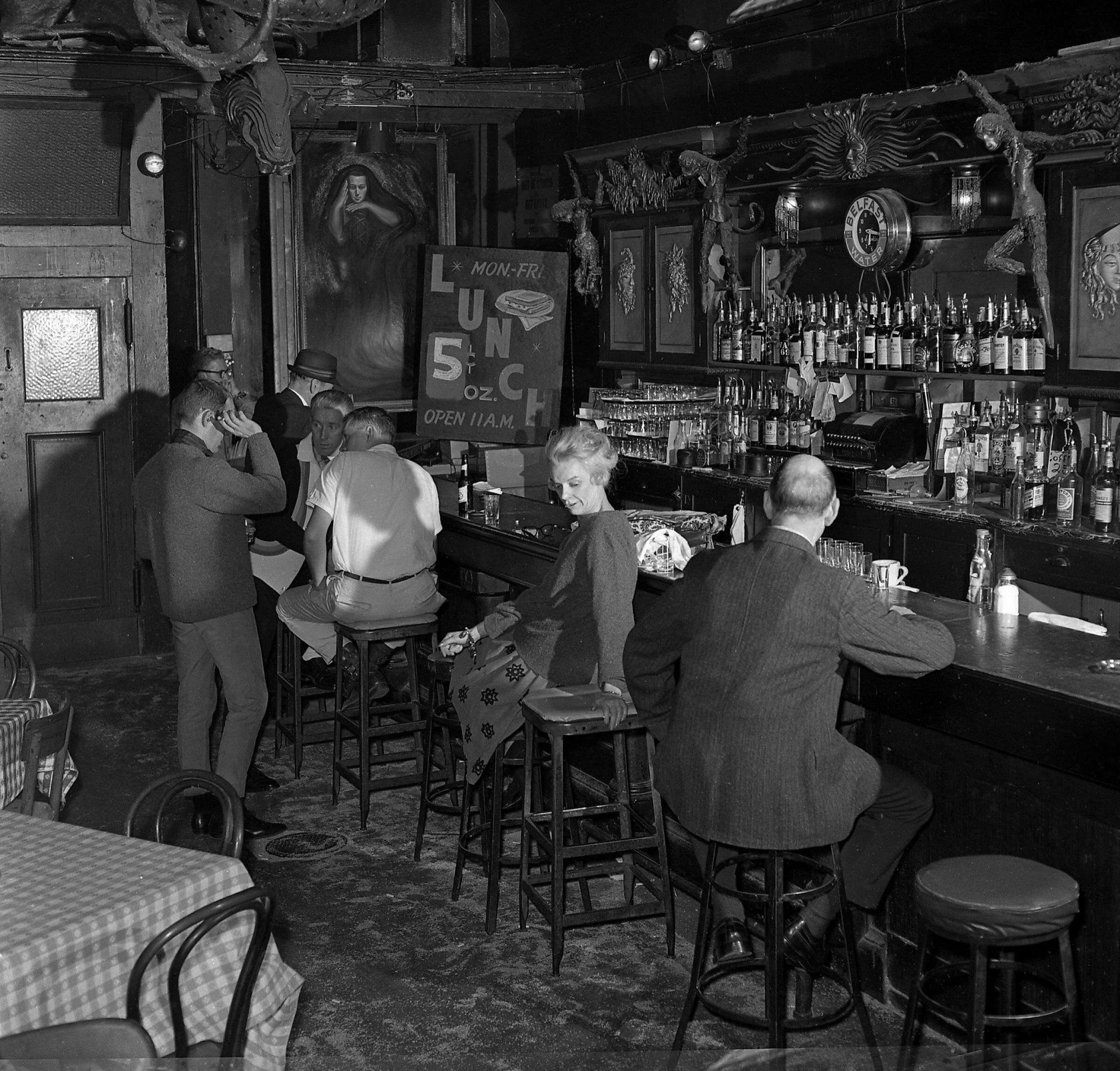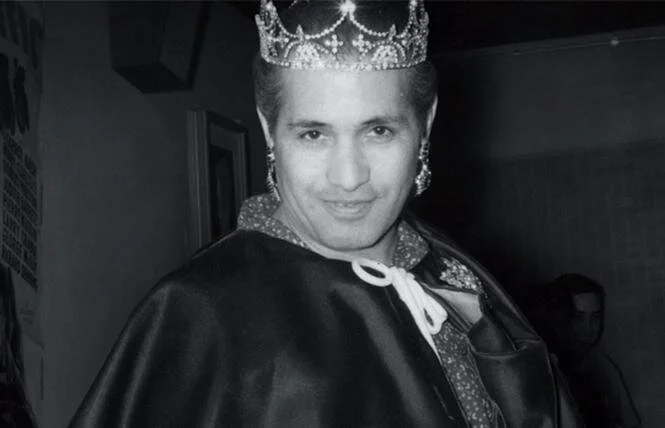
Our Founder
Jose Julio Sarria International scholarship
José Julio Sarria
In Honor and Loving Memory
Absolute Empress I, The Widow Norton
December 12, 1922 - August 19, 2013
José Julio Sarria son of Maria Dolores Maldonado and Julio Sarria, was born December 12, 1922 in San Francisco, California. In his early years, Jose was a student of languages and the performing arts. After graduating high school, and motivated by the attacks on Pearl Harbor, Sarria enlisted in the United States Army, honorably serving his country in the European theatre as an aide to Colonel Theodore Mataxis. Following José's distinguished service and honorable discharge in 1947, he returned home to his beloved San Francisco.
In his early years was a student of the performing arts and languages. After graduating high school and the attacks on Pearl Harbor, Sarria enlisted in the United States Army, honorably serving his country in the European theatre as aide to Colonel Theodore Mataxis. Following Jose's honorable service and discharge in 1947, he returned home to his beloved San Francisco.
Upon his return, a young Sarria would frequent a local bar called the ‘Black Cat’ on Montgomery Street near Broadway at the center of San Francisco's Beat and Bohemian scene. He became the lover of one of the waiters, Jimmy Moore, and on occasion he would substitute for Jimmy when he was unable to work.
He was hired as a waiter and later became the hostess. The owner, Solomon Stoumen, noticed José's ability to provide entertainment and later encouraged him to create performances to draw customers on the weekends. Before long, Sarria would be billed as "The Nightingale of Montgomery Street" performing full blown operatic productions, parodies of torch songs and vignettes, all filled with sexual innuendos or political or social commentary. He played to standing rooms only and often patrons stood outside of the bar to hear his performances.
The Black Cat stage became the vehicle of Sarria's powerful, politically active, and community voice of purpose. During a time of McCarthyism, abusive police raids, and Department of Alcoholic Beverage Control harassment of gay establishments, the Black Cat stood up to these institutions via the legal courts and community support. Sarria was a prominent drag queen and political activist that was unafraid of standing up against the establishment. Sarria used humor and his performance art to serve as the backdrop of his political activism and street-level organizing that cultivated, educated, and empowered a sense of gay pride, identity, and unity in the gay community of San Francisco.
At the end of his Sunday performances, he made the audience stand up and hold hands and sing his famed ‘God Save the Nellie Queens’ as a way of instilling solidarity for the gay community on hand and beyond the walls of the Black Cat. He would encourage audiences to be united and proud of who they were, instilling in all that "united we stand, divided they get us one by one." Sarria would remain as the headliner at the Black Cat until its closing in 1963 after multiple police raids.
In 1960, Sarria, a very proud Latino as well as prominent drag queen, founded the League of Civil Education, lending his political voice to educate the community about homosexuality. To raise attention for the cause and after years of oppressive police raids on gay bars and unrelenting arrests of gay individuals, Sarria decided to run for public office. While the community at large was not aware of Sarria's homosexual politics, Sarria had organized the gay community and collected the signatures needed to qualify him for the 1961 Fall elections of the San Francisco Board of Supervisors.
Sarria also co-founded the Society for Individual Rights. This early homophile organization was assertive and self-confident, proving and giving a more incredible voice to the gay vote in the community. By design, The Society for Individual Rights was built by street-level organizing. It was more democratic and inclusive. This new vision for gay political activism would become a model, paving the way for our modern gay political organizations that followed.
In 1963, San Francisco gay bar owners and Sarria founded the Tavern Guild of San Francisco, organizing club owners and patrons to stand united to fight against growing police corruption, raids, and arrests of gay club owners and patrons.
In 1964 at the Beaux Arts Ball hosted by the Tavern Guild of San Francisco, José was crowned Queen of the Ball. Later, he said, "we're all queens, and why become a queen when you can become empress." Thus, he proclaimed himself Empress of San Francisco and later proclaimed that he was the wife of the late Emperor Joshua Norton. The Tavern Guild refused to allow him to go around in female attire, so he dressed up in a suit, tie, hat, a variety of necklaces and jewels, and hints of makeup to attend various functions. He had his courtiers and held court as the Empress.
In 1961, the visionary, José Julio Sarria, became the first openly gay candidate for public office in the United States when he ran for the San Francisco Board of Supervisors. He placed fifth with over 5,600 votes from among a field of 29 candidates. José's courageous run for public office put the gay vote on the American political map. As José himself put it, "from that day on, nobody ran for anything without knocking on the door of the gay community."
In 1965, Sarria founded The Imperial Court of San Francisco. The Tavern Guild was the original owner, and the Empress was its official hostess. As in any organization, the start was a little rocky, but José held firm, and a Privy Council was formed to govern the office of Empress. Based upon European royalty, various areas of San Francisco such as Polk Street, The Castro, The Tenderloin, and South of Market were noted as "colony or enclave" where Czarinas were appointed to oversee these areas. These Czarinas, former Empresses, and other individuals served on the Privy Council.
Sarria led the Imperial Court of San Francisco modeled after his early days of political activism and street-level organizing. He educated and cultivated a greater community sense of gay pride, identity, and unity in the years to follow. Each year, electing Empresses at the Tavern Guild's Annual Beaux Arts Ball became an annual event that drew audiences in growing numbers. When you voted, you had to buy a ticket to the ball. Contestants solicited votes, and the person with the most votes and admirers at the ball was elected and crowned Empress.
In 1972, a group of men formed the Council of Emperors of San Francisco and elected their first Emperor. In 1976, the Emperors took José to Woodlawn Cemetery to visit the gravesite of her late husband, Joshua. When José passed, he was laid to rest close to his late “husband.” This ritual has become an annual pilgrimage and where each newly elected Emperor of San Francisco takes his oath of office the day after his election.
The Emperors and Empresses had separate coronations and courts until 1983, when they held a joint coronation and election of the Emperor and Empress.
The visionary Sarria recognized the successes he and his Imperial Court of San Francisco had in uniting the gay community of San Francisco. After founding the Imperial Court of San Francisco, Sarria expanded his vision and began working with prominent drag queens, gay community leaders, and activists inside and outside of San Francisco to share his vision of a greater united, politically active, and charitable gay community. By 1969, Sarria decided to expand and create Imperial Courts and Empires across North America modeled after the Imperial Court of San Francisco. In 1970, Sarria and his Imperial Court of San Francisco helped establish Imperial Courts in Vancouver, B.C., and Portland, Oregon making them the first Imperial Courts outside San Francisco. Sarria and the Imperial Court of San Francisco would empower the creation of over 35 courts in the decade that followed. Sarria then spent the next two decades expanding the growth of Imperial Courts and Empires across North America. By 1995, the 30th Anniversary of the Imperial Court of San Francisco, under Sarria's leadership, over 60 Imperial Courts and Empires had been established throughout the United States, Canada, and Mexico.
Watch ‘Nelly Queen: The Life & Times of José Sarria’ (2016)
Sarria marked 1996 as the year of one of his fondest and most honored achievements. After several earlier attempts, Sarria had successfully established a united LGBT international association of charitable community organizations, officially founding The International Court Council and the International Court System. The organization was united as a family and community to fight for more outstanding global education of LGBT civil rights, LGBT social justice, and charitable community service. Sarria, as its founder and leader, profoundly and proudly shared this honor with all Imperial Courts and Empires that had joined in embracing his long-held vision of this historic 1996 formation of a united charitable International Court System.
Sarria's honored leadership, contributions, and historical legacy as the visionary leader, educator, and official voice of the Imperial Court of San Francisco and The International Court System that followed remained until he abdicated in 2007. Even after that, Sarria remained a formidable guiding voice to The Imperial Court of San Francisco and the International Court System.
The Imperial Council of San Francisco, Inc. Board of Directors has established the José Julio Sarria Charitable Giving Fund in honor of our founder’s historical legacy.
The Grand Mere, Absolute Empress I de San Francisco, the Widow Norton, José; a proud openly gay Latino, drag queen, and one of the great iconic American pioneering political activists and leaders of the modern-day LGBT civil rights and social justice movements, gracefully and peacefully passed on from this life after a long battle with cancer at his home in Albuquerque, New Mexico at 7:02 AM on Monday, Aug. 19, 2013, in his 90th year blessing this earth.
To donate to the José Julio Sarria Charitable Giving Fund
